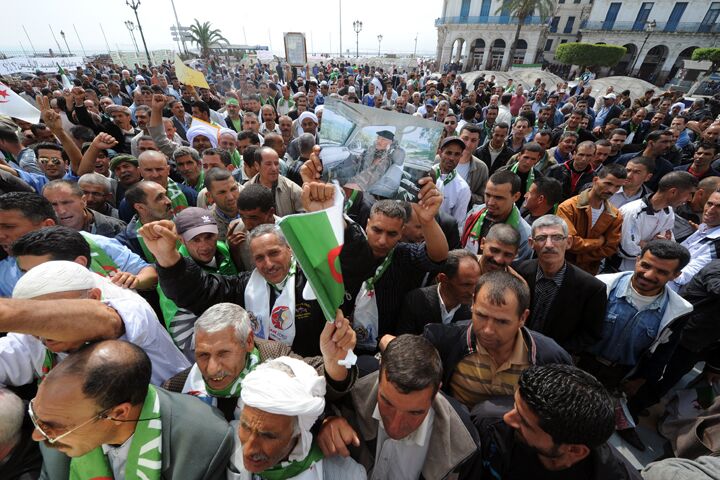
Algeria Seeks to Ward Off Its Own ‘Arab Spring’
In the wake of neighboring countries falling to revolutionary forces in recent months, the Algerian government has been taking steps to preempt the same happening in Algeria, the bbc reported Wednesday.
Back in February, President Abdelaziz Bouteflika lifted a 19-year-old state of emergency. Since then, the government has embarked on further initiatives and compromises to win over the public—including appeasing Islamists.
In early May, it revised the national budget to allocate more money to public sector workers’ salaries and subsidies for basic foodstuffs. This month, the president is expected to release 4,000 Islamists from prison, most of whom have been held since a 1992 clash between Islamists and the military.
President Bouteflika is also promising democratic reforms including an amended constitution and new electoral laws. One of the two people he nominated to organize and lead a national dialogue on reforms was selected for his connections to Islamist leaders.
These moves clearly show that President Bouteflika is afraid of radical Islam’s growing presence and influence in his country. Analysts doubt that Bouteflika’s moves thus far will be enough to counteract the discontent arising from poor living conditions and the lack of transparent and fair political representation.
However, any opening up of the electoral process—which currently bans Islamists and religious-based parties—will more than likely only give more power to radical Islam, just as we have seen in several other countries over recent months. Ali Belhadj, a former Islamist leader, believes that it is a secular minority that stands in the way of Algerian Muslims’ Islamic program. While religion-based parties are banned under the current constitution, Islamist parties still exist in Algeria, including the Muslim-Brotherhood-aligned Movement for Society and Peace, which is part of the ruling coalition. Such parties simply changed their names when the constitution was amended in 1996.
Whether it is through the current government’s appeasement of the Islamists, or through popular uprising, we can expect oil-rich Algeria to trend toward the Iranian-led Islamist camp. As editor in chief Gerald Flurry writes in The King of the South, “Sudan is already in the radical Islamic camp. Algeria may be there very soon.”
